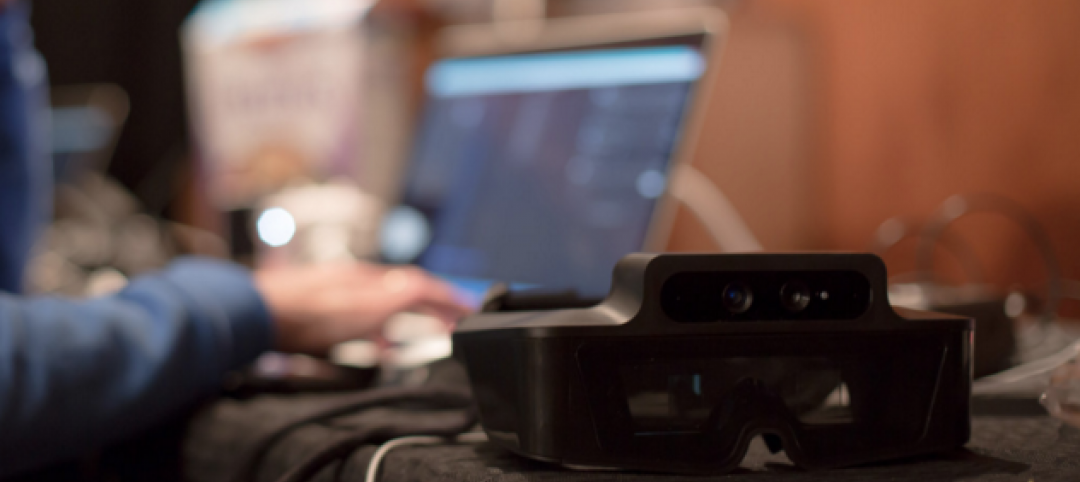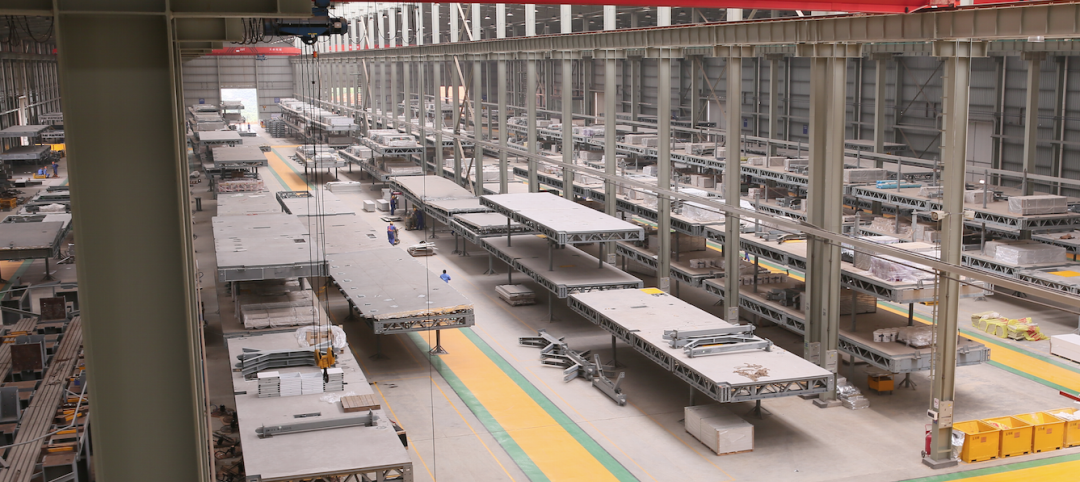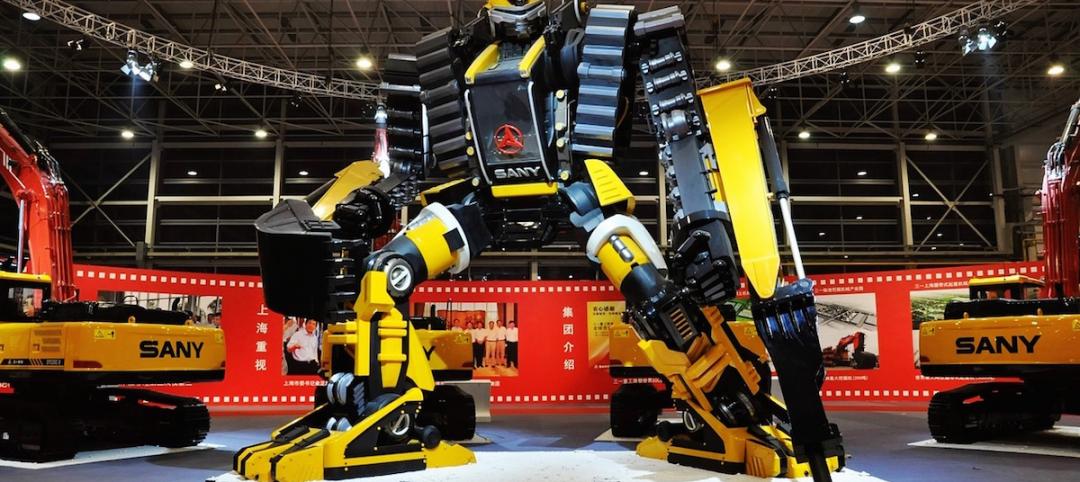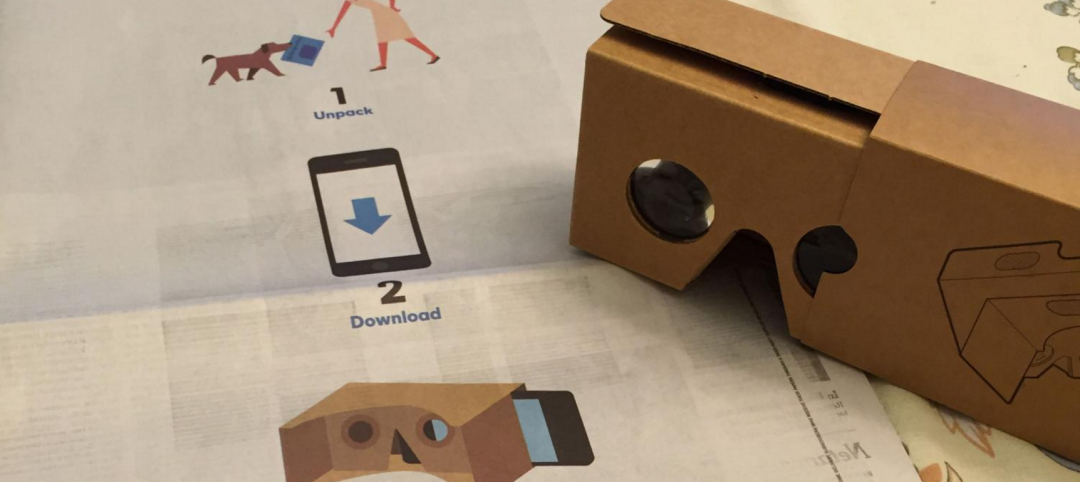The majority of construction companies currently aren't using cloud software, and fewer than two-fifths plan to move their takeoff, estimating, or project management functions onto the cloud within the next four years, according to a survey of estimators, executives, and project managers conducted by Houston-based On Center Software, which provides technology solutions to construction professionals.
Among the survey’s 921 respondents, 42% were estimators, 22% managers or chief estimators, 22% project managers, and 13% executives.
Being able to communicate using a single source of data is the most important factor to all respondents when they are evaluating different software providers. More than 60% of each respondent group indicates that being able to integrate their systems—particularly estimating, takeoffs, and project management—is a requirement when evaluating providers.
The respondents are also looking for solutions that minimize costly errors and rework.
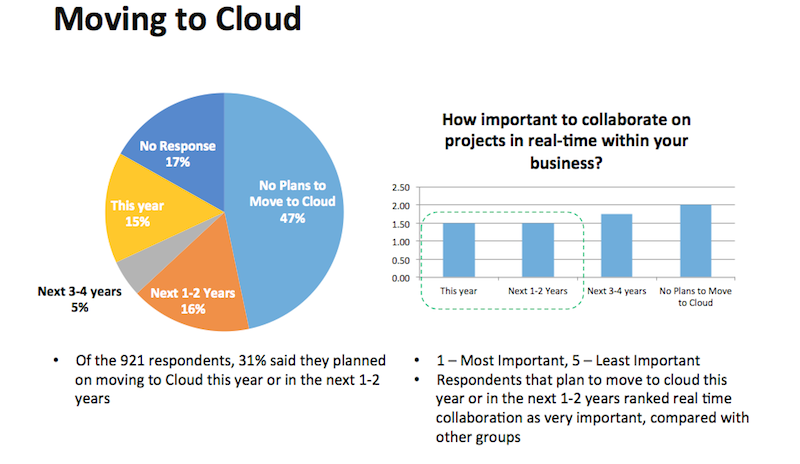
Yet, about 70% of those polled say their companies aren’t using cloud software today. However, 15% plan to move their processes to the cloud this year, 16% within the next two years, and 5% within the next four years.
Nearly half of the respondents—47%—aren’t planning to move their processes to the cloud within this time period.
Angelo Castelli, On Center Software’s Chief Operating Officer, points out the irony of this resistance, in that a significant portion of the industry “doesn’t realize” yet that the kind of broad collaboration companies are seeking, which would allow them to communicate about projects in real time using a single data source, can only be provided by the cloud.
The survey’s findings, though, do seem to reflect the construction’s industry’s basic conservatism when it comes to technology. Laptops still dominate as the preferred mobile device among the respondent groups. Less than half of the respondents are currently using smartphones. Android is the most widely used smartphone among respondents whose companies plan to move to the cloud within the next two years.
Related Stories
BIM and Information Technology | Mar 2, 2016
Thanks to MIT researchers, Boston now has its very own citywide building energy model
The most detailed model ever for a city this size will help Boston meet its long-term energy use goals.
BIM and Information Technology | Feb 24, 2016
5 tips for creating photorealistic architectural renderings
Storytelling, authenticity, and detail are vital to producing lifelike project artwork, according to a digital art specialist.
Augmented Reality | Feb 17, 2016
Startup Meta unveils holographic augmented reality prototype
The startup is an underdog in the AR battle but has a range of investors and fans.
Game Changers | Feb 5, 2016
London’s ’shadowless’ towers
Using advanced design computation, a design team demonstrates how to ‘erase’ a building’s shadows.
Game Changers | Feb 4, 2016
GAME CHANGERS: 6 projects that rewrite the rules of commercial design and construction
BD+C’s inaugural Game Changers report highlights today’s pacesetting projects, from a prefab high-rise in China to a breakthrough research lab in the Midwest.
Drones | Feb 3, 2016
A new volume measurement tool makes drone imagery easier to analyze
DroneDeploy’s latest app is available for all mobile devices.
BIM and Information Technology | Jan 27, 2016
Seeing double: Dassault Systèmes creating Virtual Singapore that mirrors the real world
The virtual city will be used to help predict the outcomes of and possible issues with various scenarios.
BIM and Information Technology | Jan 26, 2016
How the Fourth Industrial Revolution will alter the globe’s workforce
The next great technological metamorphosis will be unlike anything humankind has experienced before, due to the sheer size, speed, and scope of disruption.
Great Solutions | Jan 20, 2016
Skanska’s new app helps construction teams monitor and meet environmental quality standards while renovating hospitals
App allows users to track noise, differential pressure levels, vibration, and dust
Augmented Reality | Jan 19, 2016
Will Generation Virtuals' office be a pair of glasses?
A waning need for office buildings may be on the horizon, thanks to the possibility of working remotely via new technologies like Google Cardboard, writes HDR's Rachel Park.




